- Home
- Packaging Products
- Pe Vacuum Skin Packaging Market Size, Future Growth and Forecast 2033
Pe Vacuum Skin Packaging Market Size, Future Growth and Forecast 2033
Pe Vacuum Skin Packaging Market Segments - by Material Type (Polyethylene, Polypropylene, Polyvinyl Chloride, Others), Application (Food, Pharmaceuticals, Electronics, Industrial Goods, Others), Packaging Type (Rigid, Flexible), End-User (Retail, Food Service, Industrial, Others) - Market Dynamics, Growth Opportunities, Strategic Drivers, and PESTLE Outlook (2025–2033)
Pe Vacuum Skin Packaging Market Outlook
The Pe Vacuum Skin Packaging market was valued at $3.5 billion in 2024 and is projected to reach $6.8 billion by 2033, growing at a CAGR of 7.2% during the forecast period 2025-2033. This market is experiencing significant growth due to the increasing demand for extended shelf life of products, particularly in the food and pharmaceutical sectors. The rise in consumer preference for fresh and minimally processed food products is driving the adoption of vacuum skin packaging, which offers superior protection and preservation. Additionally, advancements in packaging technology and the development of eco-friendly materials are further propelling market growth. The market is also benefiting from the growing trend of convenience packaging, which is highly favored by busy consumers seeking easy-to-use and store packaging solutions.
Report Scope
| Attributes | Details |
| Report Title | Pe Vacuum Skin Packaging Market Size, Future Growth and Forecast 2033 |
| Base Year | 2024 |
| Historic Data | 2017-2023 |
| Forecast Period | 2025-2033 |
| Number of Pages | 199 |
| Material Type | Polyethylene, Polypropylene, Polyvinyl Chloride, Others |
| Application | Food, Pharmaceuticals, Electronics, Industrial Goods, Others |
| Packaging Type | Rigid, Flexible |
| End-User | Retail, Food Service, Industrial, Others |
| Customization Available | Yes* |
Opportunities & Threats
One of the key opportunities in the Pe Vacuum Skin Packaging market lies in the increasing demand for sustainable and eco-friendly packaging solutions. As environmental concerns continue to rise, consumers and manufacturers are seeking packaging options that minimize environmental impact. This has led to the development of biodegradable and recyclable materials in vacuum skin packaging, which not only meet regulatory requirements but also appeal to environmentally conscious consumers. Furthermore, the growing e-commerce industry presents a significant opportunity for vacuum skin packaging, as it provides enhanced protection for products during transportation, reducing the risk of damage and returns.
Another opportunity is the expanding application of vacuum skin packaging in the pharmaceutical and electronics industries. In the pharmaceutical sector, vacuum skin packaging is used to protect sensitive products from contamination and extend their shelf life. Similarly, in the electronics industry, it provides a protective barrier against moisture and dust, ensuring the integrity of electronic components. The increasing demand for high-quality packaging solutions in these industries is expected to drive market growth. Additionally, the rise in disposable income and changing consumer lifestyles are contributing to the demand for premium packaging solutions, further boosting the market.
However, the market faces certain restraints, such as the high cost of vacuum skin packaging compared to traditional packaging methods. The initial investment required for vacuum skin Packaging Machinery and materials can be a barrier for small and medium-sized enterprises. Additionally, the complexity of the packaging process and the need for specialized equipment may limit the adoption of vacuum skin packaging in certain regions. Despite these challenges, the market is expected to overcome these restraints through technological advancements and cost-effective solutions.
The Pe Vacuum Skin Packaging market is characterized by a competitive landscape with several key players dominating the market. Companies are focusing on strategic partnerships, mergers, and acquisitions to expand their market presence and enhance their product offerings. The market is witnessing a trend of consolidation, with larger companies acquiring smaller players to strengthen their position in the market. This has led to increased competition and innovation, as companies strive to differentiate themselves through unique product features and Sustainable Packaging solutions.
Some of the major companies in the Pe Vacuum Skin Packaging market include Sealed Air Corporation, Amcor Limited, Berry Global Inc., Winpak Ltd., and LINPAC Packaging Limited. Sealed Air Corporation is a leading player in the market, known for its innovative packaging solutions and strong focus on sustainability. The company offers a wide range of vacuum skin packaging products that cater to various industries, including food, pharmaceuticals, and electronics. Amcor Limited is another key player, with a strong global presence and a diverse product portfolio. The company is committed to developing sustainable packaging solutions and has made significant investments in research and development to enhance its product offerings.
Berry Global Inc. is a prominent player in the market, known for its extensive range of packaging solutions and strong customer base. The company has a robust distribution network and a strong focus on customer satisfaction, which has helped it maintain a competitive edge in the market. Winpak Ltd. is a leading manufacturer of vacuum skin packaging, with a strong emphasis on quality and innovation. The company has a wide range of products that cater to various industries, including food, pharmaceuticals, and electronics. LINPAC Packaging Limited is another key player, known for its sustainable packaging solutions and strong focus on customer needs.
Other notable companies in the market include Bemis Company, Inc., Coveris Holdings S.A., Plastopil Hazorea Company Ltd., and Schur Flexibles Group. These companies are actively investing in research and development to enhance their product offerings and expand their market presence. The competitive landscape of the Pe Vacuum Skin Packaging market is expected to remain dynamic, with companies focusing on innovation and sustainability to gain a competitive edge.
Key Highlights Pe Vacuum Skin Packaging Market

- The market is projected to grow at a CAGR of 7.2% from 2025 to 2033.
- Increasing demand for sustainable and eco-friendly packaging solutions is driving market growth.
- The food and pharmaceutical sectors are the major end-users of vacuum skin packaging.
- Technological advancements in packaging materials and machinery are enhancing product offerings.
- The e-commerce industry presents significant growth opportunities for vacuum skin packaging.
- High initial investment costs and complexity of the packaging process are key restraints.
- Key players are focusing on strategic partnerships and acquisitions to expand their market presence.
- The market is witnessing a trend of consolidation, with larger companies acquiring smaller players.
- Innovation and sustainability are key focus areas for companies in the market.
Premium Insights - Key Investment Analysis
The Pe Vacuum Skin Packaging market is attracting significant investment due to its promising growth prospects and increasing demand for sustainable packaging solutions. Venture capital activity in the market is on the rise, with investors showing keen interest in companies that offer innovative and eco-friendly packaging solutions. The market is witnessing a surge in mergers and acquisitions, as companies seek to expand their product portfolios and enhance their market presence. Strategic investments are being made in research and development to develop Advanced Packaging materials and technologies that meet the evolving needs of consumers and regulatory requirements.
Investment valuations in the Pe Vacuum Skin Packaging market are expected to remain robust, driven by the increasing demand for high-quality packaging solutions in the food, pharmaceutical, and electronics industries. Investors are focusing on companies that demonstrate strong growth potential and a commitment to sustainability. The market is also witnessing the emergence of new investment themes, such as the development of biodegradable and Recyclable Packaging materials, which are attracting significant investor interest. Risk factors in the market include the high cost of packaging machinery and materials, as well as the complexity of the packaging process.
Despite these challenges, the Pe Vacuum Skin Packaging market offers high-potential investment opportunities, particularly in the food and pharmaceutical sectors. The growing demand for convenience packaging and the increasing focus on sustainability are expected to drive market growth and attract investor interest. Companies that can offer innovative and cost-effective packaging solutions are likely to gain a competitive edge and attract significant investment. Overall, the Pe Vacuum Skin Packaging market presents a promising investment landscape, with ample opportunities for growth and innovation.
Pe Vacuum Skin Packaging Market Segments Insights

Material Type Analysis
The Pe Vacuum Skin Packaging market is segmented by material type, with polyethylene, polypropylene, polyvinyl chloride, and others being the key materials used in packaging. Polyethylene is the most widely used material due to its excellent barrier properties and cost-effectiveness. It is favored by manufacturers for its ability to provide superior protection and preservation of products. Polypropylene is also gaining popularity due to its high strength and resistance to moisture and chemicals. The demand for polyvinyl chloride is driven by its versatility and ability to provide a clear view of the packaged product. The market is witnessing a trend towards the use of eco-friendly materials, with manufacturers focusing on developing biodegradable and recyclable packaging solutions.
The competition in the material type segment is intense, with companies focusing on innovation and sustainability to gain a competitive edge. The demand for high-quality packaging materials is driven by the increasing need for extended shelf life and protection of products. Manufacturers are investing in research and development to enhance the performance and sustainability of packaging materials. The market is also witnessing a shift towards the use of renewable materials, as consumers and manufacturers seek to reduce their environmental impact. The material type segment is expected to witness significant growth, driven by the increasing demand for sustainable and high-performance packaging solutions.
Application Analysis
The Pe Vacuum Skin Packaging market is segmented by application, with food, pharmaceuticals, electronics, industrial goods, and others being the key applications. The food sector is the largest application segment, driven by the increasing demand for fresh and minimally processed food products. Vacuum skin packaging offers superior protection and preservation of food products, extending their shelf life and reducing food waste. The pharmaceutical sector is also a major application segment, with vacuum skin packaging used to protect sensitive products from contamination and extend their shelf life. The electronics industry is witnessing increasing demand for vacuum skin packaging, as it provides a protective barrier against moisture and dust, ensuring the integrity of electronic components.
The demand for vacuum skin packaging in the industrial goods sector is driven by the need for high-quality packaging solutions that provide protection during transportation and storage. The market is witnessing a trend towards the use of vacuum skin packaging in new applications, such as cosmetics and personal care products, as manufacturers seek to enhance the protection and presentation of their products. The application segment is expected to witness significant growth, driven by the increasing demand for high-quality and sustainable packaging solutions across various industries.
Packaging Type Analysis
The Pe Vacuum Skin Packaging market is segmented by packaging type, with rigid and Flexible Packaging being the key types. Rigid Packaging is favored for its durability and ability to provide superior protection to products. It is widely used in the food and pharmaceutical sectors, where product protection and preservation are critical. Flexible packaging is gaining popularity due to its lightweight and cost-effectiveness. It is favored by manufacturers for its ability to provide a clear view of the packaged product and its ease of use and storage. The market is witnessing a trend towards the use of flexible packaging, as manufacturers seek to reduce packaging costs and enhance the convenience of their products.
The competition in the packaging type segment is intense, with companies focusing on innovation and sustainability to gain a competitive edge. The demand for high-quality packaging solutions is driven by the increasing need for extended shelf life and protection of products. Manufacturers are investing in research and development to enhance the performance and sustainability of packaging materials. The market is also witnessing a shift towards the use of renewable materials, as consumers and manufacturers seek to reduce their environmental impact. The packaging type segment is expected to witness significant growth, driven by the increasing demand for sustainable and high-performance packaging solutions.
End-User Analysis
The Pe Vacuum Skin Packaging market is segmented by end-user, with retail, food service, industrial, and others being the key end-users. The retail sector is the largest end-user segment, driven by the increasing demand for convenience packaging and the growing trend of online shopping. Vacuum skin packaging offers superior protection and preservation of products, reducing the risk of damage and returns. The food service sector is also a major end-user segment, with vacuum skin packaging used to protect and preserve food products during transportation and storage. The industrial sector is witnessing increasing demand for vacuum skin packaging, as it provides a protective barrier against moisture and dust, ensuring the integrity of products.
The demand for vacuum skin packaging in the retail sector is driven by the need for high-quality packaging solutions that provide protection during transportation and storage. The market is witnessing a trend towards the use of vacuum skin packaging in new applications, such as cosmetics and personal care products, as manufacturers seek to enhance the protection and presentation of their products. The end-user segment is expected to witness significant growth, driven by the increasing demand for high-quality and sustainable packaging solutions across various industries.
Market Share Analysis
The market share distribution of key players in the Pe Vacuum Skin Packaging market is characterized by a few dominant players holding a significant share of the market. Companies like Sealed Air Corporation, Amcor Limited, and Berry Global Inc. are leading the market, leveraging their extensive product portfolios and strong global presence. These companies are gaining market share through strategic partnerships, mergers, and acquisitions, which enable them to expand their market presence and enhance their product offerings. Smaller players are also making strides by focusing on niche markets and offering specialized packaging solutions.
The competitive positioning of companies in the market is influenced by factors such as innovation, sustainability, and customer satisfaction. Companies that can offer unique and sustainable packaging solutions are gaining a competitive edge and increasing their market share. The market share distribution also affects pricing strategies, with larger companies able to leverage economies of scale to offer competitive pricing. Partnerships and collaborations are becoming increasingly important, as companies seek to enhance their product offerings and expand their market presence. Overall, the market share distribution in the Pe Vacuum Skin Packaging market is dynamic, with companies focusing on innovation and sustainability to gain a competitive edge.
Top Countries Insights in Pe Vacuum Skin Packaging
The United States is one of the top countries in the Pe Vacuum Skin Packaging market, with a market size of $1.2 billion and a CAGR of 6%. The growth in the U.S. market is driven by the increasing demand for convenience packaging and the growing trend of online shopping. The market is also benefiting from the presence of major players and the availability of advanced packaging technologies.
Germany is another key market, with a market size of $900 million and a CAGR of 5%. The growth in the German market is driven by the increasing demand for sustainable packaging solutions and the strong presence of the food and pharmaceutical industries. The market is also benefiting from government initiatives to promote sustainable packaging practices.
China is a rapidly growing market, with a market size of $800 million and a CAGR of 8%. The growth in the Chinese market is driven by the increasing demand for high-quality packaging solutions and the growing trend of online shopping. The market is also benefiting from the presence of major players and the availability of advanced packaging technologies.
Japan is another key market, with a market size of $700 million and a CAGR of 4%. The growth in the Japanese market is driven by the increasing demand for convenience packaging and the strong presence of the food and pharmaceutical industries. The market is also benefiting from government initiatives to promote sustainable packaging practices.
India is a rapidly growing market, with a market size of $600 million and a CAGR of 7%. The growth in the Indian market is driven by the increasing demand for high-quality packaging solutions and the growing trend of online shopping. The market is also benefiting from the presence of major players and the availability of advanced packaging technologies.
Pe Vacuum Skin Packaging Market Segments
The Pe Vacuum Skin Packaging market has been segmented on the basis of
Material Type
- Polyethylene
- Polypropylene
- Polyvinyl Chloride
- Others
Application
- Food
- Pharmaceuticals
- Electronics
- Industrial Goods
- Others
Packaging Type
- Rigid
- Flexible
End-User
- Retail
- Food Service
- Industrial
- Others
Primary Interview Insights
What are the key drivers of growth in the Pe Vacuum Skin Packaging market?
What challenges does the Pe Vacuum Skin Packaging market face?
How is the market responding to environmental concerns?
Which industries are driving demand for vacuum skin packaging?
What are the emerging trends in the Pe Vacuum Skin Packaging market?
Latest Reports

The fiber drums market was valued at $1.2 billion in 2024 and is projected to reach $2.1 billion by 2033, growing at a CAGR of 6.5% during the forecast period 2025–2033.
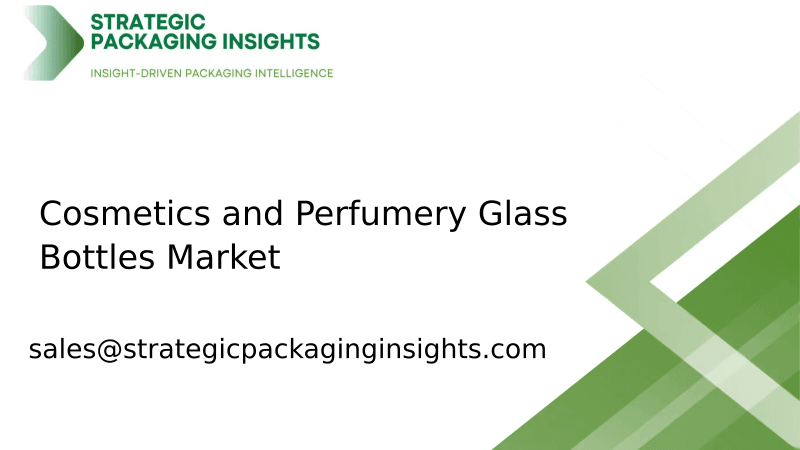
The cosmetics and perfumery glass bottles market was valued at $1.5 billion in 2024 and is projected to reach $2.3 billion by 2033, growing at a CAGR of 4.8% during the forecast period 2025–2033.

The medical devices packaging market was valued at $25 billion in 2024 and is projected to reach $40 billion by 2033, growing at a CAGR of 5.5% during the forecast period 2025–2033.

The primary packaging labels market was valued at $35 billion in 2024 and is projected to reach $55 billion by 2033, growing at a CAGR of 5.2% during the forecast period 2025–2033.

The corrugated board packaging market was valued at $250 billion in 2024 and is projected to reach $380 billion by 2033, growing at a CAGR of 4.5% during the forecast period 2025–2033.

The Water Soluble Packaging Films market was valued at $2.8 billion in 2024 and is projected to reach $5.6 billion by 2033, growing at a CAGR of 8.1% during the forecast period 2025–2033.

The Aluminium Foil Packaging market was valued at $25 billion in 2024 and is projected to reach $40 billion by 2033, growing at a CAGR of 5.5% during the forecast period 2025–2033.

The self-heating food packaging market was valued at $4.5 billion in 2024 and is projected to reach $7.8 billion by 2033, growing at a CAGR of 6.2% during the forecast period 2025–2033.

The Smart Container market was valued at $2.5 billion in 2024 and is projected to reach $8.7 billion by 2033, growing at a CAGR of 14.5% during the forecast period 2025–2033.

The Automatic Labeling Machine market was valued at $2.5 billion in 2024 and is projected to reach $4.8 billion by 2033, growing at a CAGR of 7.2% during the forecast period 2025–2033.

The Hot Melt Glue Labeler market was valued at $1.2 billion in 2024 and is projected to reach $2.3 billion by 2033, growing at a CAGR of 6.5% during the forecast period 2025–2033.

The Ethical Label market was valued at $1.5 billion in 2024 and is projected to reach $3.2 billion by 2033, growing at a CAGR of 8.5% during the forecast period 2025–2033.

The Packaging Tensioner market was valued at $1.2 billion in 2024 and is projected to reach $2.3 billion by 2033, growing at a CAGR of 6.5% during the forecast period 2025–2033.
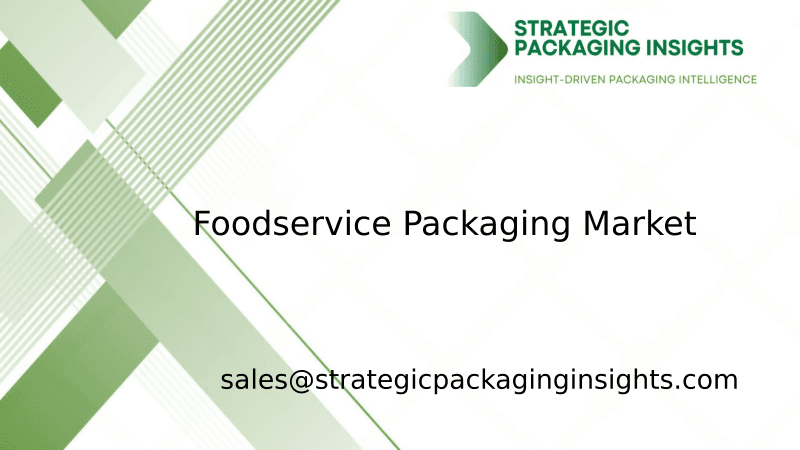
The foodservice packaging market was valued at $120 billion in 2024 and is projected to reach $180 billion by 2033, growing at a CAGR of 4.5% during the forecast period 2025–2033.

The nano-enabled packaging market was valued at $15.2 billion in 2024 and is projected to reach $35.6 billion by 2033, growing at a CAGR of 9.5% during the forecast period 2025–2033.
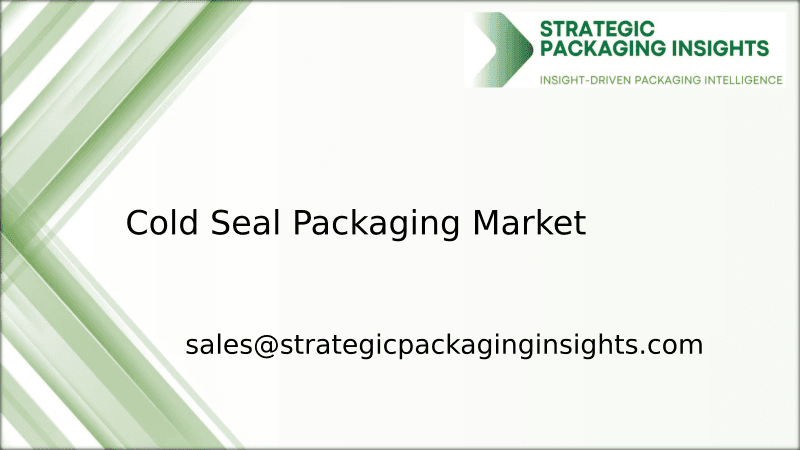
The Cold Seal Packaging market was valued at $1.5 billion in 2024 and is projected to reach $2.3 billion by 2033, growing at a CAGR of 4.8% during the forecast period 2025–2033.

The Transparent Barrier Packaging Films market was valued at $12.5 billion in 2024 and is projected to reach $20.3 billion by 2033, growing at a CAGR of 5.8% during the forecast period 2025–2033.

The Flatback Tape market was valued at $2.5 billion in 2024 and is projected to reach $4.1 billion by 2033, growing at a CAGR of 5.8% during the forecast period 2025–2033.

The packer bottle market was valued at $3.5 billion in 2024 and is projected to reach $5.8 billion by 2033, growing at a CAGR of 5.2% during the forecast period 2025–2033.
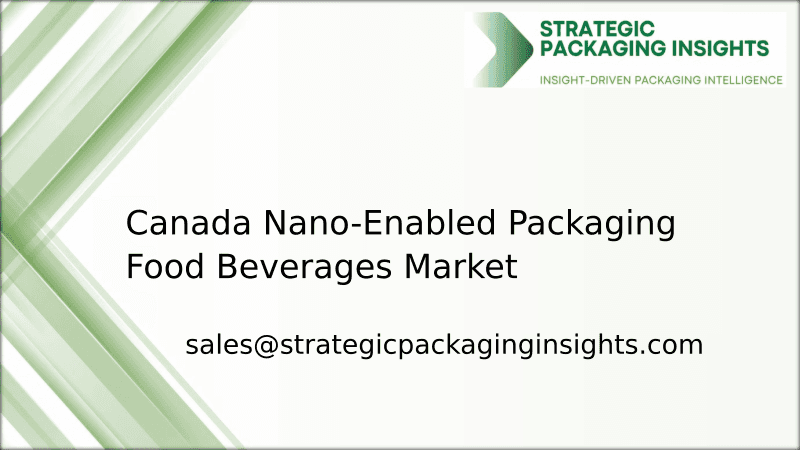
The Canada Nano-Enabled Packaging Food Beverages market was valued at $1.2 billion in 2024 and is projected to reach $3.5 billion by 2033, growing at a CAGR of 12.5% during the forecast period 2025–2033.
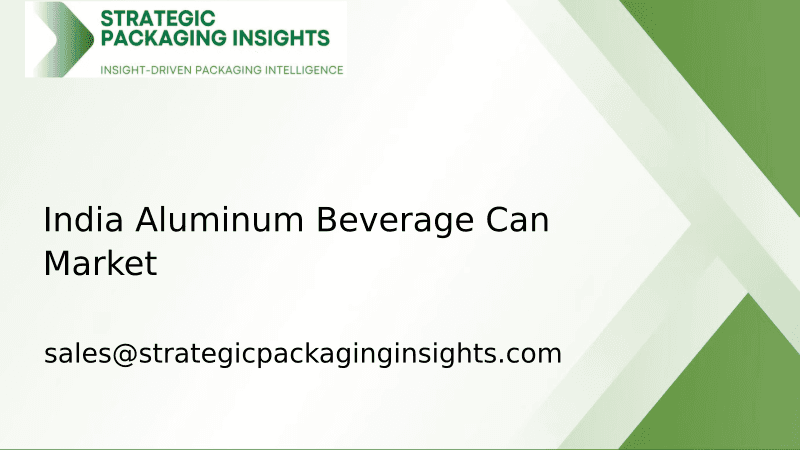
The India Aluminum Beverage Can market was valued at $1.2 billion in 2024 and is projected to reach $2.5 billion by 2033, growing at a CAGR of 8.5% during the forecast period 2025–2033.
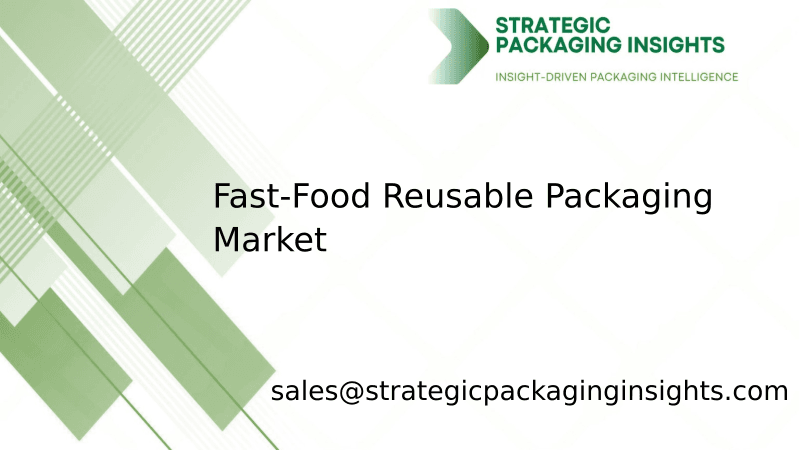
The fast-food reusable packaging market was valued at $1.2 billion in 2024 and is projected to reach $3.5 billion by 2033, growing at a CAGR of 12.5% during the forecast period 2025–2033.

The pallets market was valued at $59.91 billion in 2024 and is projected to reach $88.69 billion by 2033, growing at a CAGR of 4.5% during the forecast period 2025–2033.

The lamination adhesives market was valued at $2.5 billion in 2024 and is projected to reach $4.1 billion by 2033, growing at a CAGR of 5.8% during the forecast period 2025–2033.

The garment packing machine market was valued at $1.2 billion in 2024 and is projected to reach $2.5 billion by 2033, growing at a CAGR of 8.5% during the forecast period 2025–2033.

The fiber drums market was valued at $1.2 billion in 2024 and is projected to reach $2.1 billion by 2033, growing at a CAGR of 6.5% during the forecast period 2025–2033.

The cosmetics and perfumery glass bottles market was valued at $1.5 billion in 2024 and is projected to reach $2.3 billion by 2033, growing at a CAGR of 4.8% during the forecast period 2025–2033.

The medical devices packaging market was valued at $25 billion in 2024 and is projected to reach $40 billion by 2033, growing at a CAGR of 5.5% during the forecast period 2025–2033.

The primary packaging labels market was valued at $35 billion in 2024 and is projected to reach $55 billion by 2033, growing at a CAGR of 5.2% during the forecast period 2025–2033.

The corrugated board packaging market was valued at $250 billion in 2024 and is projected to reach $380 billion by 2033, growing at a CAGR of 4.5% during the forecast period 2025–2033.

The Water Soluble Packaging Films market was valued at $2.8 billion in 2024 and is projected to reach $5.6 billion by 2033, growing at a CAGR of 8.1% during the forecast period 2025–2033.

The Aluminium Foil Packaging market was valued at $25 billion in 2024 and is projected to reach $40 billion by 2033, growing at a CAGR of 5.5% during the forecast period 2025–2033.

The self-heating food packaging market was valued at $4.5 billion in 2024 and is projected to reach $7.8 billion by 2033, growing at a CAGR of 6.2% during the forecast period 2025–2033.

The Smart Container market was valued at $2.5 billion in 2024 and is projected to reach $8.7 billion by 2033, growing at a CAGR of 14.5% during the forecast period 2025–2033.

The Automatic Labeling Machine market was valued at $2.5 billion in 2024 and is projected to reach $4.8 billion by 2033, growing at a CAGR of 7.2% during the forecast period 2025–2033.

The Hot Melt Glue Labeler market was valued at $1.2 billion in 2024 and is projected to reach $2.3 billion by 2033, growing at a CAGR of 6.5% during the forecast period 2025–2033.

The Ethical Label market was valued at $1.5 billion in 2024 and is projected to reach $3.2 billion by 2033, growing at a CAGR of 8.5% during the forecast period 2025–2033.

The Packaging Tensioner market was valued at $1.2 billion in 2024 and is projected to reach $2.3 billion by 2033, growing at a CAGR of 6.5% during the forecast period 2025–2033.

The foodservice packaging market was valued at $120 billion in 2024 and is projected to reach $180 billion by 2033, growing at a CAGR of 4.5% during the forecast period 2025–2033.

The nano-enabled packaging market was valued at $15.2 billion in 2024 and is projected to reach $35.6 billion by 2033, growing at a CAGR of 9.5% during the forecast period 2025–2033.

The Cold Seal Packaging market was valued at $1.5 billion in 2024 and is projected to reach $2.3 billion by 2033, growing at a CAGR of 4.8% during the forecast period 2025–2033.

The Transparent Barrier Packaging Films market was valued at $12.5 billion in 2024 and is projected to reach $20.3 billion by 2033, growing at a CAGR of 5.8% during the forecast period 2025–2033.

The Flatback Tape market was valued at $2.5 billion in 2024 and is projected to reach $4.1 billion by 2033, growing at a CAGR of 5.8% during the forecast period 2025–2033.

The packer bottle market was valued at $3.5 billion in 2024 and is projected to reach $5.8 billion by 2033, growing at a CAGR of 5.2% during the forecast period 2025–2033.

The Canada Nano-Enabled Packaging Food Beverages market was valued at $1.2 billion in 2024 and is projected to reach $3.5 billion by 2033, growing at a CAGR of 12.5% during the forecast period 2025–2033.

The India Aluminum Beverage Can market was valued at $1.2 billion in 2024 and is projected to reach $2.5 billion by 2033, growing at a CAGR of 8.5% during the forecast period 2025–2033.

The fast-food reusable packaging market was valued at $1.2 billion in 2024 and is projected to reach $3.5 billion by 2033, growing at a CAGR of 12.5% during the forecast period 2025–2033.

The pallets market was valued at $59.91 billion in 2024 and is projected to reach $88.69 billion by 2033, growing at a CAGR of 4.5% during the forecast period 2025–2033.

The lamination adhesives market was valued at $2.5 billion in 2024 and is projected to reach $4.1 billion by 2033, growing at a CAGR of 5.8% during the forecast period 2025–2033.

The garment packing machine market was valued at $1.2 billion in 2024 and is projected to reach $2.5 billion by 2033, growing at a CAGR of 8.5% during the forecast period 2025–2033.
